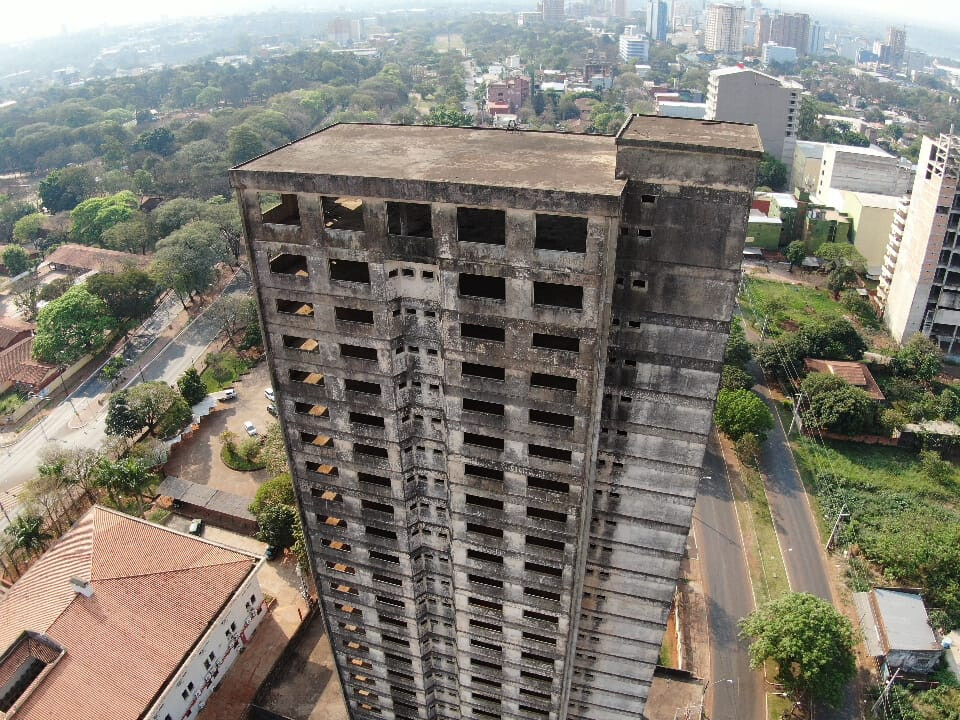
Asunción, Paraguay - The Paraguayan government is facing mounting criticism for its mismanagement of a large administrative complex in the Asunción port area. Despite a hefty investment of over $10 billion, the government has failed to fully utilize the completed buildings and continues to lease office space elsewhere, incurring annual rental costs of $23.7 million.
The redevelopment project of the Asunción port area, initiated in 2010, aimed to modernize the public transportation system and relocate government agencies to a centralized location. Five high-rise buildings were constructed as part of this project. However, government ministries have been reluctant to move into these new facilities, preferring to remain in their scattered rented offices. Notably, the Ministry of Education, the Ministry of Public Works, and the Ministries of Housing and Labor were allocated 16, 13, and 12 floors, respectively, in the new complex, which now stands largely vacant.
The government's continued rental payments of $23.7 million annually, funded by taxpayers, have fueled public outrage. Ministries such as Foreign Affairs, Health, and Education are among the biggest spenders on office rentals.
This mismanagement has been attributed to a combination of poor planning and bureaucratic inertia. Issues such as unauthorized modifications to the buildings after completion and inadequate public transportation access have hindered the relocation process. Furthermore, government agencies have been resistant to change and have preferred to maintain their existing work environments.
The government's failure to utilize the new buildings and its continued reliance on rented office space is a clear waste of taxpayer money and a hindrance to administrative efficiency. By leaving these buildings vacant while simultaneously paying hefty rental fees, the government is squandering public resources. Moreover, the dispersal of government offices across the city has negatively impacted the efficiency of government operations.
To address this issue, the Paraguayan government must take immediate steps to:
Develop a comprehensive plan for occupying the new administrative complex.
Improve public transportation infrastructure in the area.
Terminate unnecessary lease agreements and reduce rental costs.
Increase transparency in budget allocation and spending.
The Paraguayan government must prioritize the efficient use of public funds and strive to improve the quality of public services. By taking decisive action to address this issue, the government can restore public trust and demonstrate its commitment to good governance.
[Copyright (c) Global Economic Times. All Rights Reserved.]




























